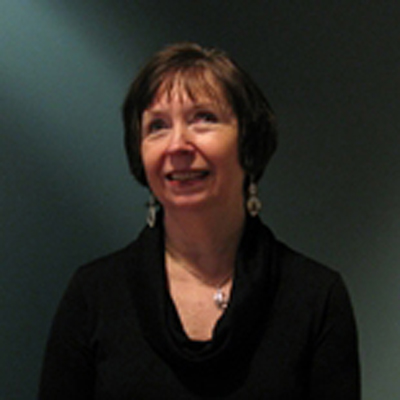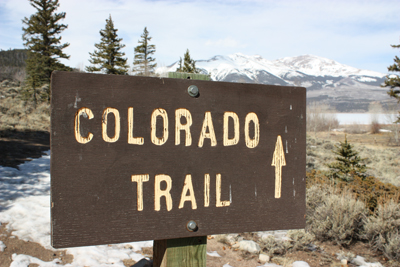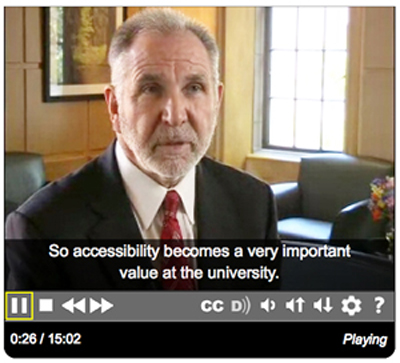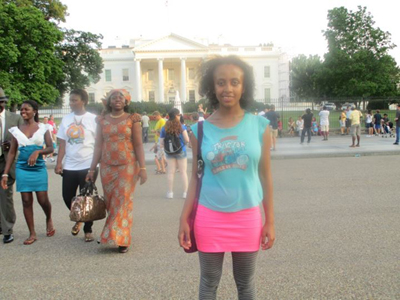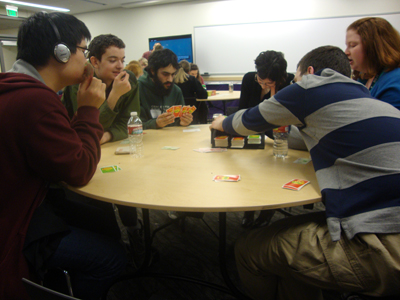Director's Digressions
One of the pleasures of my job is reading messages in our many Internet-based discussion forums. Recently, I posted a question asking for advice on how to make social connections in college. Here are some of the insights shared by young people with disabilities engaged in DO-IT activities, as well as their parents and mentors. Responses have been edited for length and to ensure anonymity.
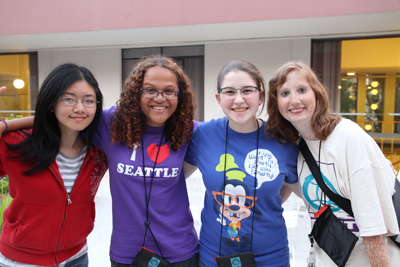
From students with disabilities:
Having a positive, easy-going attitude helps potential friends relax around you and enjoy their time with you.
Do things you love to do, and friends of any age will find you, or you will find them. The way I made friends in college was going to clubs that interested me and getting to know people in my dorms those first couple weeks of school during residence hall meetings.
I now have bilateral Cochlear implants, so hearing in a social setting is easier, but it is still up to me to step out there. One thing that helps me make social connections is to not be afraid to share my story. I often go out of my way to make others feel comfortable around me, even joking about advantages of being hearing impaired sometimes. I'm very open about my implants. People are usually curious and ask questions about being hearing impaired. Once their questions are answered, the conversation moves on to typical stuff and then the social connections are made. Some people are never one hundred percent comfortable around me. I have learned that is not my issue and I let it go.
Go to the extracurricular office to browse information about clubs to join.
Most people don't have an issue with my disability. I don't either. That is the key!
First, I thought about what I was looking for in my friendships. Then I introduced myself to people who I thought met or exceeded my expectations regarding their interests. Once introductions went well, I invited groups of friends to various fun outings, events, or meals that would be easy for their schedules, would not require a tremendous time commitment, and would be things they may need to do anyway. I soon learned who enjoyed spending time with me, as well as with whom I enjoyed spending time.
From parents:
Highly structured groups and activities are the ones our son is most comfortable in, so he can know his role/job and concentrate on doing it well, rather than wondering what's going to happen next. He also enjoys being in professional societies with adults—this helps him connect what he's learning in school to how it's used in real jobs and provide contacts for future internships. It's important to build on strengths and interests, not on commonality of disability. Ever since elementary school, people have attempted to put my son in groups of other kids with the same disability. He hates this. He often has nothing to talk about with them. Honestly, we have found that the individuals with the most passion on the topics he enjoys—and thus the most to say in return—are typically adults, sometimes even senior citizens, who genuinely value his enthusiasm and the piles of facts he has amassed. Older "friends" often have more patience and social skills which teens may lack, and they are not looking to only hang with the cool crowd. The main point is that friends do not have to be peers in age.
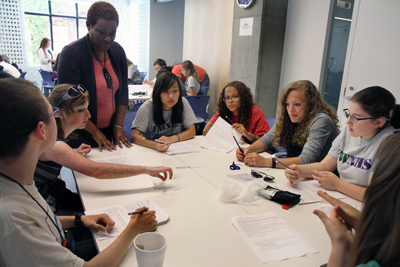
For our son with autism, making friends has always been an effort. He does not see friendship as evolving from sitting around doing nothing with pals—he needs the structure of an activity and then builds trusting relationships from there.
My daughter is in her second year at college. She is active in dorm activities and was voted dorm leader. She has made a lot of friends.
Our child joined social clubs with specific interests—such as human rights and environmental groups—and showed up for campus events with classmates he met.
Parents should avoid being pressured into "letting go and seeing what happens," in other words, feeling they must drop him at the dorm door and drive off with fingers crossed. For our son, while he is academically fine in college-level work, he is not socially ready to be left to his own devices one hundred percent of the time. The university understands this and values ongoing family involvement. They facilitate parent-to-parent connections.
One of the most effective things we have done to continue offering support while also backing away as much as we can is to hire a peer mentor. Volunteers are often very helpful, but a student who works for the family is much more focused and reliable—crucial for a sense of stability and trust. We have found a fantastic young man who enjoys working with our son. The guy is amazing—he has already spent a year in England supporting a masters student with cerebral palsy, and has provided care and companionship for another young person with Down syndrome. We've figured out a workable schedule of five to six hours a week for him to focus with our son on specific social tasks. It's all couched in fun (going to the campus gym and working out, attending a concert together, etc.), but we have goals for him to work on, sort-of like an IEP. A peer introduced as "my friend, Joe" can fit into situations in which parents cannot, and yet he can also partner with parents for good follow-up at home. He engages in social activities with his peer tutor that he would not do alone.
Try new approaches. Take one day at a time.
